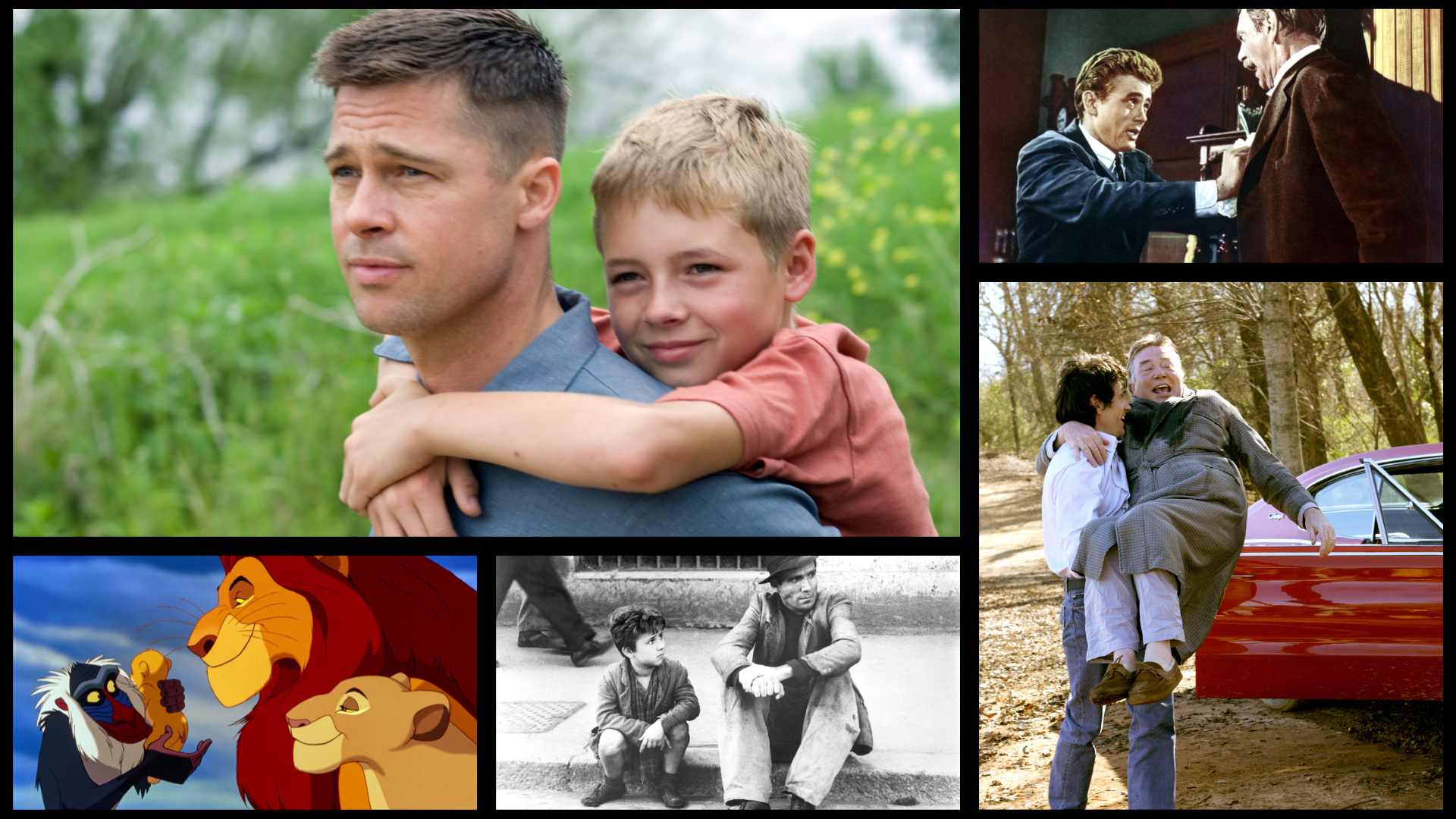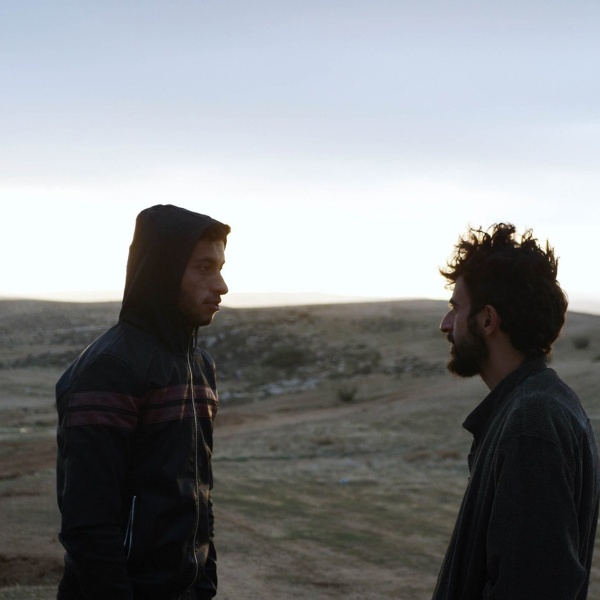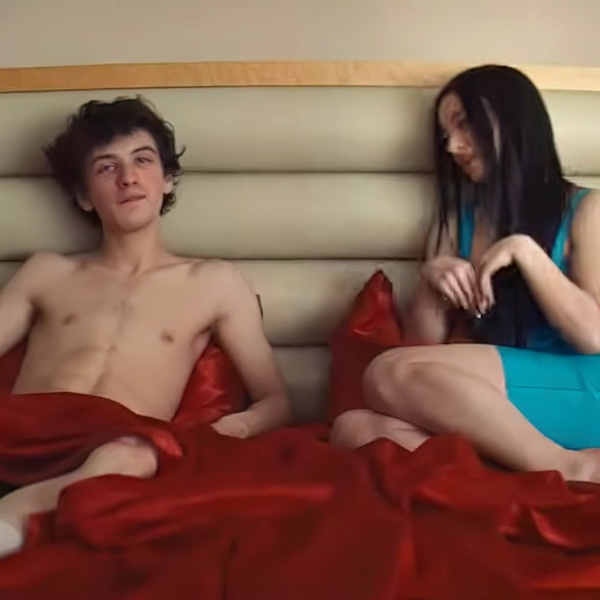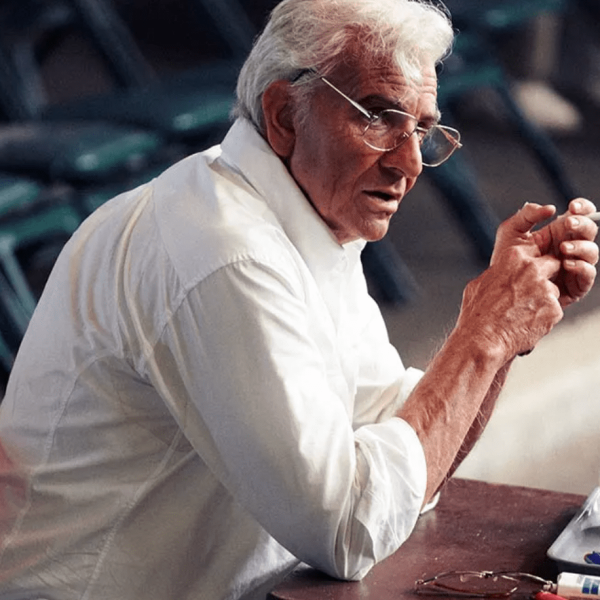Every family relationship (mother/daughter, father/daughter, mother/son, sibling/sibling) is fertile material for any film, but none have been pillaged quite as extensively as the father/son dynamic. Blame the patriarchy, perhaps, for centering the male experience far more extensively in fiction, resulting in films where daughters and mothers tend to fall by the wayside in favor of drama between the men of the family.
Still, filmmakers and their work respond to the imperfect culture we all live in, and the relationship between a father and son can act as a vehicle to explore powerful ideas on screen. Familial expectations, pressures to uphold legacies, and the emotional repression that often defines heterosexual male relationships inform many of cinema’s greatest father stories, which can often be boiled down to the (somewhat reductive) label of “daddy issue” dramas. At their best, though, father-and-son films say something about how the culture shapes our perceptions of masculinity and tear through the macho walls men build around themselves to explore earnest, heartfelt stories of love that can reduce any audience member to a blubbering mess. Read on for the 10 greatest father-and-son films of all time.
“The Kid” (1921)

Family isn’t always who you are biologically related to. Among the first films to explore this truth is Charlie Chaplin’s early classic “The Kid,” his first full-length directorial effort. Jackie Coogan, maybe the earliest Hollywood child star, plays the kid of the title, who is abandoned as a baby by his devastated mother and ends up in the care of Chaplin’s destitute but kind Tramp. Years pass, and the two are living in poverty but happy when they run afoul of the law and encounter the mother again, now rich and desiring to reunite with her child. “The Kid,” like much of Chaplin’s greatest films, mixes side-splitting laughs with melancholy, and the tender onscreen bond between the silent star and the young Coogan gives the film unexpected emotional power.
“Bicycle Thieves” (1948)

Vittorio De Sica’s revolutionary neorealist drama redefined film by emphasizing raw authenticity over crafted drama. Its sobering look at life among the poor in Rome post-World War II is engrossing, and it would fall apart if the central dynamic between Lamberto Maggiorani’s destitute Antonio and his son, the sweet-hearted Bruno (Enzo Staiola) ever felt forced or mawkish. They are the central relationship of the film after all, teaming up to find Antonio’s bicycle after it is stolen off the streets so he can take a job posting advertising bills and save his family from starvation. Luckily, there’s nothing precious about either Maggiorani or Staiola’s performances, with De Sica finding an authentic bond between his nonprofessional cast members. Their performances particularly spark during the film’s heart-rending finale, which effectively portrays the universal experience of discovering the parent you look up to is just another flawed human being.
“East of Eden” (1955)

James Dean’s first lead role is perhaps a smidgen less iconic than his tortured bad boy in “Rebel Without a Cause,” but he mines similar gold playing the forgotten black sheep child whose failures to live up to his father’s expectations give him a major chip on the shoulder. Elia Kazan’s swoony melodrama takes John Steinbeck’s epic family drama and its decade-spanning plot, and trims it down to focus on Dean’s Caleb, the moody son of Raymond Massey’s pious farmer who feels constantly overshadowed by his more responsible brother Aron (Richard Davalos). Caleb’s discovery of his long-lost mother’s life as a brothel owner, and his pursuit of Aron’s fiancée Abra (Julie Harris) bring the resentment between him and his father to the surface, and Dean and Massey are both devastating as two men who love each other deeply but prove completely incapable of showing it.
“The Godfather” (1972)

“The Godfather” is such an outsized classic touchstone of cinema that it’s easy to forget how simple the film really is. At its core, Francis Ford Coppola’s iconic film is a story of a father and the son who ends up embodying his mistakes; it just so happens to be that “embodying his mistakes” means “becoming a ruthless mafia head,” in this case. Al Pacino is the white sheep of the Corleone family, Michael, a Marine who wants nothing to do with the criminal enterprise his father, the loving but ruthless Vito (Marlon Brando) has built for himself. But he’s thrust into the business when he thwarts a hit on his father’s life, and eventually becomes the exact type of man his father once was. The two sequels to the film would continue to explore these potent themes of familial legacy, but the first film’s transformation remains the most indelible.
“Back to the Future” (1985)

Many probably wonder what it would be like to meet your parents as a peer. “Back to the Future” dramatizes that wistful thought as a stone-cold classic sci-fi comedy, pushing the rebellious Marty Mcfly (Michael J. Fox) back from his time period of 1985 to the ’50s, when his parents were in high school and about to fall in love. His presence disrupts that fairy tale, as he gets his mom (Lea Thompson) hot for him instead, and is forced to coach his nerdy dad George (Crispin Glover) on how to swoop her off her feet. While the most iconic relationship in Robert Zemeckis’ film is the one between Marty and his surrogate dad Doc Brown (Christopher Lloyd), the odd friendship between the time-displaced teen and his future father is the most impactful, especially in how Marty’s machinations eventually turn the pushover into the type of man that his child can genuinely respect.
“Field of Dreams” (1989)

The guy cry film, “Field of Dreams” is about as corny as the field that Kevin Costner mows down to build a baseball diamond in. Still, if you aren’t sobbing when Costner’s tortured son Ray reunites with the ghost of his father (Dwier Brown), you’re a little bit dead inside. Dramatizing Ray’s struggles to process his estranged relationship through a baseball drama where the ghosts of dead baseball players return from the dead for the good old-fashioned game, Phil Alden Robinson’s film mines classic American masculine iconography to tell a simple but moving story of a man attempting to move on from his demons and become a better father and family man. It’s so earnestly presented and sweet that it can reduce the toughest critics among us to a weeping baby.
“The Lion King” (1994)

Shakespeare in the Savanna, “The Lion King” distills all of the complex emotional tragedy and despair in the Bard’s magnum opus “Hamlet” to zoom into the lead character’s central arc of avenging and living up to the legacy of his father. Oh, and Hamlet and the king are both talking lions. Disney’s gigantic ’90s hit is obviously a much more family-friendly affair than the tale of the Danish prince, but it still finds stirring power in Simba’s quest to become the king his father Mufasa knew he was capable of being. Part of it comes from how resonant the arc is with anyone who’s ever felt the pressure to carry on their family’s name proudly. Most of it comes from James Earl Jones, whose iconic and commanding vocal performance as Mufasa makes the Lion King a figure of such regal authority that anyone could understand having trouble following in his footsteps (er, pawprints).
“Catch Me If You Can” (2002)

Before he dramatized his parents’ divorce in 2022’s “The Fabelmans,” Steven Spielberg’s films were often defined by the absence of father figures: See the single mother raising the kids of “E.T.” or the frosty relationship between the title character and his dad in “Indiana Jones and the Last Crusade.” Of all the daddy issue stories Spielberg has made, maybe the most poignant is the con artist story of “Catch Me If You Can,” which stars Leonardo DiCaprio as a career criminal who took after his father (Christopher Walken). Although their relationship was troubled, flashbacks show their bond to be warm — Walken has never been more endearing — and the moment where DiCaprio’s Frank learns about his father’s death is among the most wrenchingly sad sequences Spielberg has ever put on screen.
“Big Fish” (2003)

Tim Burton’s last great film, “Big Fish” is a movie all about the gulf between father and son. The film’s central character, Edward Bloom (Ewan McGregor as a young man, Albert Finney as an adult) is a chronic liar whose tall tales alienate his more responsible son William (Billy Crudup). When William is forced to take care of his dad as he dies of cancer, he hears the fantastical and dubiously true story of Edward’s life, and in the process comes to understand his father in a light he was never capable of before. Burton’s films often struggle to pair his ability to create memorable images and whimsical aesthetics with a real story; by pairing his quirky style with a good old fashioned father-son story, he created a film that’s primed to leave you a blubbering mess.
“The Tree of Life” (2011)

When “The Tree of Life” first came out, some decried it as pretentious and emotionally empty. But one viewing of the film makes it obvious how wrong that take is. Terrence Malick’s last great film is easily the most sincere and warm film he’s ever made, an exploration of the meaning of life that zeroes in on one troubled man Jack’s childhood memories. At the center of Jack’s recollections of his childhood in the ’50s is his distant relationship with his father, an often strict man who himself is haunted by failed ambitions. “The Tree of Life” explores their strained relationship with nuance, and wraps it into its broader tapestry of the origins of human life in a way that feels near mythical.



